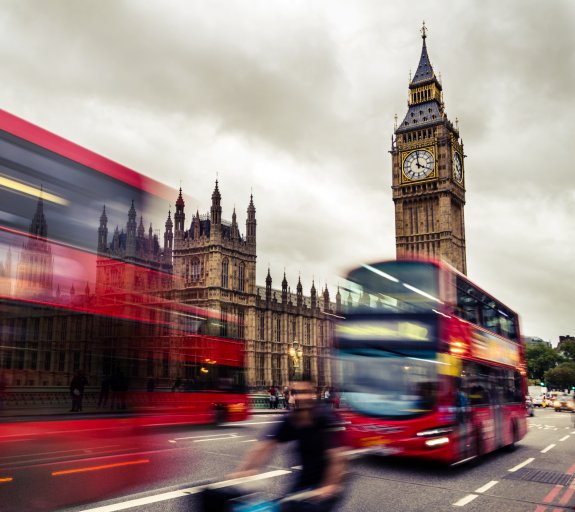
UK reaction: Changing our Bank of England call to August, from June
- 22 Mayo 2024 (3 min de lectura)
KEY POINTS
The call between June and August was always finely balanced and April’s CPI data have tipped the scales towards an August cut in our eyes. While the headline rate ticked down to 2.3% ‑ its slowest pace since July 2021 – from 3.2% in March, that was above both the MPC’s and analysts’ expectations, 2.1%. Core inflation also ticked down, but at 3.9%, it was well above the expected 3.6%. Worryingly, the upside surprises were mainly focused in the services sector, leaving services CPI inflation down just 0.1 percentage points at 5.9%, compared to 6% in March. Note that the MPC are placing more weight on services CPI inflation at the moment to guide them on the persistence of the second-round effects on wages and domestic prices, given the inadequacies of the labour market data. The Committee made it pretty clear in the May meeting that if the upcoming data progressed in line with their expectations, a June cut was firmly on the cards, but this hurdle was not cleared.
As expected, Ofgem’s 12.3% drop in the Energy Price Cap drove April’s decline, knocking off 0.44pp from the headline rate. Food price inflation also continued to slow, falling to 2.9% in April, from 4% in March, shaving off a further 0.14pp, while alcohol and tobacco cut off 0.16pp. Meanwhile, non-industrial energy goods inflation dropped sharply to 0.6% in April, from 1.5% in March, reflecting discounting in both furniture and clothing.
The main upside surprise was in services. While hefty increases in prices were expected across a range of items, such as mobile phone bills and rents, the upside surprises in services inflation were broad-based. The biggest contribution was from restaurants and hotels CPI which added 0.85pp to the headline rate. Within that, accommodation services rose by 0.9% on the month, after jumping by 3.8% in March, leaving prices up 4.8% across the two months, compared to 3% over the same period in 2023. Underlying inflation in this sector is strong and likely will remain so over the coming months as the near-10% hike in the National Living Wage puts upward pressure on wage growth. Recreation and cultural services, meanwhile, increased by 3.6% month-to-month in April, adding 0.62pp to the headline rate. And prices for both airfares and package holidays rose by more than analysts had expected.
Looking ahead, we think CPI inflation will continue to tick down next month, as goods and food CPI inflation both continue their decline. Base effects will also help, as the large increases in services prices last year drop out of the annual comparison. But the broad-based strength in services in April means we think the decline will be slow going; core inflation likely won’t fall enough to return the headline rate to target over the next couple of months. The members of the MPC that were close to switching their vote, therefore, will now probably want to wait a little longer to confirm that the second-round effects on wages and domestic prices are fading as hoped. A cut this summer has been widely signalled, so we doubt they will hold out until September, but we have changed our call to August, from June.
The market reacted to the news. Sterling rose against the dollar to a peak of $1.2759, from $1.2707, before edging back to $1.2735. Markets now aren’t pricing in a full cut until November, from August previously.
Disclaimer
Este documento tiene fines informativos y su contenido no constituye asesoramiento financiero sobre instrumentos financieros de conformidad con la MiFID (Directiva 2014/65 / UE), recomendación, oferta o solicitud para comprar o vender instrumentos financieros o participación en estrategias comerciales por AXA Investment Managers Paris, S.A. o sus filiales.
Las opiniones, estimaciones y previsiones aquí incluidas son el resultado de análisis subjetivos y pueden ser modificados sin previo aviso. No hay garantía de que los pronósticos se materialicen.
La información sobre terceros se proporciona únicamente con fines informativos. Los datos, análisis, previsiones y demás información contenida en este documento se proporcionan sobre la base de la información que conocemos en el momento de su elaboración. Aunque se han tomado todas las precauciones posibles, no se ofrece ninguna garantía (ni AXA Investment Managers Paris, S.A. asume ninguna responsabilidad) en cuanto a la precisión, la fiabilidad presente y futura o la integridad de la información contenida en este documento. La decisión de confiar en la información presentada aquí queda a discreción del destinatario. Antes de invertir, es una buena práctica ponerse en contacto con su asesor de confianza para identificar las soluciones más adecuadas a sus necesidades de inversión. La inversión en cualquier fondo gestionado o distribuido por AXA Investment Managers Paris, S.A. o sus empresas filiales se acepta únicamente si proviene de inversores que cumplan con los requisitos de conformidad con el folleto y documentación legal relacionada.
Usted asume el riesgo de la utilización de la información incluida en este documento. La información incluida en este documento se pone a disposición exclusiva del destinatario para su uso interno, quedando terminantemente prohibida cualquier distribución o reproducción, parcial o completa por cualquier medio de este material sin el consentimiento previo por escrito de AXA Investment Managers Paris, S.A.
La información aquí contenida está dirigida únicamente a clientes profesionales tal como se establece en los artículos 194 y 196 de la Ley 6/2023, de 17 de marzo, de los Mercados de Valores y de los Servicios de Inversión.
Queda prohibida cualquier reproducción, total o parcial, de la información contenida en este documento.
Por AXA Investment Managers Paris, S.A., sociedad de derecho francés con domicilio social en Tour Majunga, 6 place de la Pyramide, 92800 Puteaux, inscrita en el Registro Mercantil de Nanterre con el número 393 051 826. En otras jurisdicciones, el documento es publicado por sociedades filiales y/o sucursales de AXA Investment Managers Paris, S.A. en sus respectivos países.
Este documento ha sido distribuido por AXA Investment Managers Paris, S.A., Sucursal en España, inscrita en el registro de sucursales de sociedades gestoras del EEE de la CNMV con el número 38 y con domicilio en Paseo de la Castellana 93, Planta 6 - 28046 Madrid (Madrid).
© AXA Investment Managers Paris, S.A. 2024. Todos los derechos reservados.
Advertencia sobre riesgos
El valor de las inversiones y las rentas derivadas de ellas pueden disminuir o aumentar y es posible que los inversores no recuperen la cantidad invertida originalmente.


